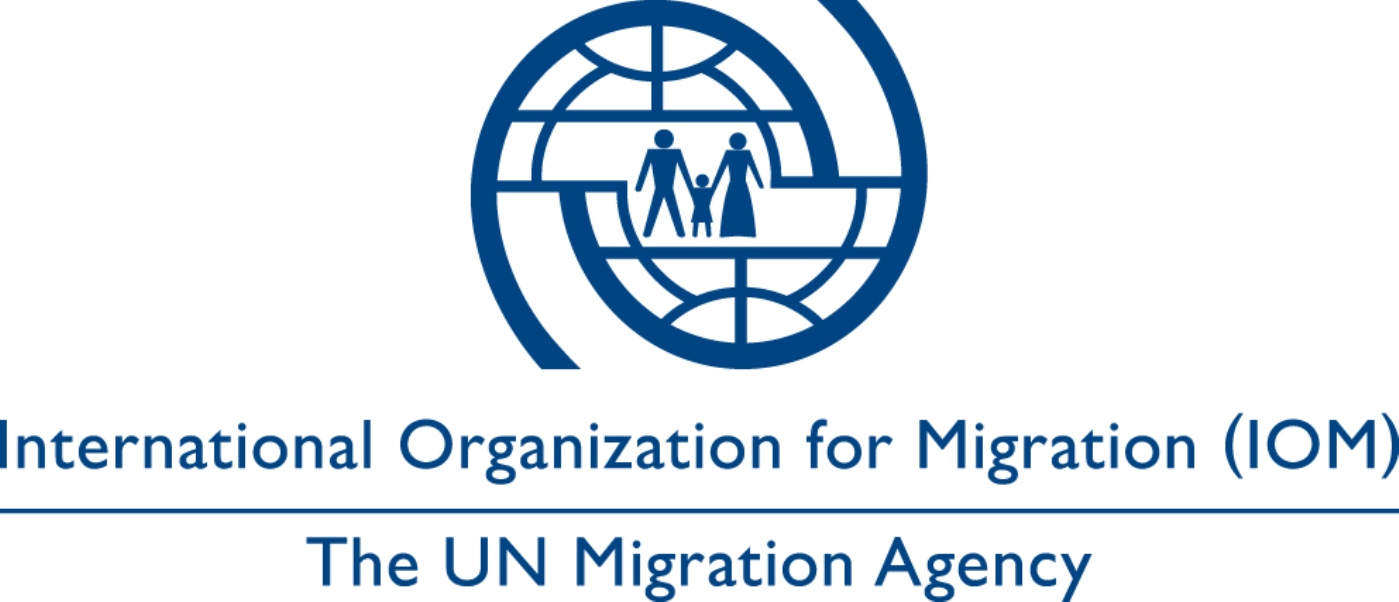National Monitoring/Evaluation and Reporting Officer at the International Organization for Migration (IOM)

The International Organization for Migration (IOM) – Established in 1951, IOM is the leading inter-governmental organization in the field of migration and works closely with governmental, intergovernmental and non-governmental partners. IOM is dedicated to promoting humane and orderly migration for the benefit of all. It does so by providing services and advice to governments and migrants.
We are recruiting to fill the position below:
Job Title: National Monitoring/Evaluation and Reporting Officer
Location: Maiduguri, Borno
Context
- Under the overall supervision of the DDRR Programme Coordinator in Abuja and the direct supervision of the DDRR Project Manager in Maiduguri, the successful candidate will support coordination and monitoring and Evaluation (M&E) and Reporting aspects of DDRR projects in Maiduguri and assist in their relevant and effective implementation, particularly in line with the expectations of IOM DDRR’s donors on M&E requirements. In particular, s/he will perform the following functions;
Core Functions / Responsibilities
- In coordination with DDRR Project in Maiduguri and the DDRR Programme Coordinator in Abuja, support the maintenance and adjustment of the overall framework for DDRR projects Monitoring and Evaluation, including the preparation of monthly, quarterly or annual program/projects reviews, participatory impact assessments, process and operations monitoring, real time, midterm and final evaluations and lessons learned workshops, while verifying that monitoring and evaluation arrangements comply with DDRR donor requirements.
- Collaborate with DDRR staff and implementing partners on both quantitative and qualitative monitoring aspects to provide relevant information for performance management and evaluations of DDRR activities for complying with regular reporting requirements.
- Support the production of regular monitoring reports to be shared with relevant stakeholders such as donors and coordinate with the Public Information Officer with regards to utilization of the outputs of M&E findings in PI materials. Draft of the evaluation reports.
- Support the development and regular revision of standardized M&E and reporting tools and operational framework, within the program strategy and donor’s requirements, respecting formats, deadlines and specific protocols, and engaging in cross-fertilization of ideas across implementing partners.
- Support the development of communication protocols and information-sharing tools, in coordination with programme management, field teams and programme partners, to facilitate improved information sharing between all programme participants and stakeholders.
- Monitor ongoing activities of the programme, facilitate the exchange of monitoring information with external partners as necessary to maintain appropriate visibility with grant activities, as well as coordinate the collection of data and preliminary analysis (qualitative and quantitative) for drafting of reports and feedback.
- Coordinate regular trainings for DDRR programme staff, implementing partners and governmental agencies in order to facilitate adherence to agreed standards of implementation.
- Undertake regular travel to field locations and contribute to building the capacity of the DRRR programme’s M&E activities; conduct and/or enable field visits using appropriate M&E tools to monitor the activities of sub-offices or project implementing partners.
- Participate in the process for identifying the key performance questions, indicators and parameters for DDRR monitoring projects performance and achievements, for comparing it to purposes and targets, and for preparing evaluations; draft the format for performance reports; review monitoring reports and targets, analyse them and identify causes of potential bottlenecks in project implementation and suggest necessary corrective actions.
- Support the process of review the availability and quality of existing social and economic data related to the DDRR programme, the methods of collecting them and the degree to which they provide good baseline statistics and reference for program monitoring and evaluation, with a focus on outcome and impact evaluations.
- Provide technical recommendations to the Project Manager, based on rolling analysis of and reporting on programming.
- Support the preparation and review of all final grant and other evaluation reports drafted by the M&E team assistants. Serve as focal point for the submission of the final grant evaluation reports, allowing the closure of project and grant activities.
- Promote the integration of protection and gender perspectives within the programme activities.
- Perform other duties as assigned.
Required Qualifications and Experience
- Master’s Degree in Development, Social or Political Sciences, Management or a related field from an accredited academic institution; or
- University Degree in the above fields with two years of relevant professional experience.
- Substantial experience in project implementation and management, preferably with experience in the field of research, monitoring and/or evaluation in insecure environments, planning and implementation of M/E systems;
- Experience in community/development service provision or programming, M&E design or implementation, or both;
- Experience in M&E system design, data processing, M/E tools and computers;
- Ability to adapt M&E tools to work effectively with local authorities, stakeholders and beneficiaries;
- Strong reporting skills;
- Experience in DDRR Programmes is an asset;
- Knowledge of EU programming, specifically in terms of pace and methodology preferred.
- At least two years of experience working in a complex crisis environment;
- Solid understanding of post-conflict environment and community development, with a focus on participatory processes and joint management
Languages:
- Fluency in English and Native Language; Fluency in multiple languages advantageous;
Required Competencies
The incumbent is expected to demonstrate the following competencies:
Value:
Inclusion & respect for diversity:
- Shows respect and sensitivity towards gender, culture, ethnicity, religion, sexual orientation, political conviction and other differences.
- Encourages the inclusion of all team members and stakeholders while demonstrating the ability to work constructively with people with different backgrounds and orientations.
- Promotes the benefits of diversity; values diverse points of view and demonstrate this in daily work and decision making.
- Challenges prejudice, biases and intolerance in the workplace.
Integrity & transparency:
- Upholds and promotes the Standards of Conduct and Unified Staff Regulations and Rules.
- Delivers on commitments; manages the organization’s resources reliably and sustainably.
- Embraces and encourages transparency, balancing this with the need for discretion and confidentiality as appropriate.
- Maintains impartiality and takes prompt action in cases of unprofessional or unethical behaviour.
- Does not abuse one’s position and acts without consideration of personal gain. Is motivated by professional rather than personal concerns.
Professionalism:
- Demonstrates professional competence and mastery of subject matter and willingness to improve knowledge and skills.
- Seeks to raise professional standards in self and others through daily work and activities.
- Adapts quickly to change and is decisive and versatile in face of uncertainty.
- Shows self-control and persistence when faced with difficult problems, and remains calm in stressful situations.
- Is conscientious and efficient in meeting commitments, observing deadlines and achieving results.
Core competencies:
Teamwork:
- Fosters a sense of team spirit by developing a shared understanding, accountability and enthusiasm for the team’s work.
- Displays a high level of cultural awareness, sensitivity to different ways of working and leverages individual strengths in order to build a better team.
- Shares credit for team accomplishments and ensures that the contribution of others is recognized.
- Helps create a positive team spirit, putting aside personal considerations to help the team achieve its goals.
Delivering results:
- Produces high-quality results and workable solutions that meet clients’ needs.
- Anticipates constraints, identifies solutions and takes responsibility for addressing critical situations.
- Monitors own and others’ work in a systematic and effective way, ensuring required resources and outputs.
- Aligns projects with Organization’s mission and objectives and demonstrates a good understanding of the impact of team’s and own work on external and internal counterparts.
Managing and sharing knowledge:
- Disseminates and shares knowledge openly and actively contributes to knowledge/network communities for topics relevant to area of expertise.
- Encourages knowledge-sharing across units/departments and ensures that knowledge is captured, recorded and disseminated appropriately.
- Builds networks for the effective communication and exchange of knowledge and ideas and puts others into contact with various sources of knowledge.
- Contributes to an environment that is conducive to innovation and learning.
Accountability:
- Proactively seeks responsibility in delivering towards the goals of the Organization.
- Plans and organizes work with a clear and deliberate focus, ensuring commitments are easily identified and progress is widely communicated.
- Stands by the actions of team or department, publicly accepting ownership.
- Takes responsibility of own shortcomings and those of the work unit, where applicable.
Communication:
- Speaks and writes clearly and effectively.
- Seeks to share information with others, with due respect for diversity and the confidentiality of specific sensitive information.
- Listens and seeks to understand without bias, and responds appropriately.
- Shares information and keeps others up to date; actively seeks others’ views and ideas and respects their contribution.
Managerial competencies:
Leadership:
- Assigns responsibilities fairly and manages performance, taking account of individual strengths, workloads and interests.
- Is inclusive in decision-making and actively seeks feedback from team members and colleagues in order to identify opportunities for improvement.
- Takes sound and timely managerial decisions that are consistent with the Organization’s vision and purpose.
- Establishes and maintains relationships with a broad range of stakeholders to understand needs and gain support.
Empowering others & building trust:
- Delegates appropriately to make the most of others’ talents, clarifying expectations and allowing autonomy in important areas while providing necessary support.
- Encourages others to take responsibility for their performance; promotes ownership, responsibility and accountability for desired results at all levels.
- Creates an atmosphere of trust and confidence in which others can talk and act without fear of repercussion.
- Gives proper credit to others, shows appreciation and rewards achievement and effort.
Strategic thinking & vision:
- Aligns own actions to the Organization’s vision, values and mandate.
- Translates strategic direction into short and medium-term plans and objectives for own team; revises objectives to reflect changes in organizational goals.
- Identifies key issues/priorities in complex situations and how they may be related to one another.
- Clearly communicates links between the Organization’s strategy and the work unit’s goals.
Other:
- Any offer made to the candidate in relation to this vacancy notice is subject to funding confirmation.
Application Closing Date
Thursday, 14th November, 2019.
The post National Monitoring/Evaluation and Reporting Officer at the International Organization for Migration (IOM) appeared first on Jobs in Nigeria – http://jobsinnigeria.careers.







